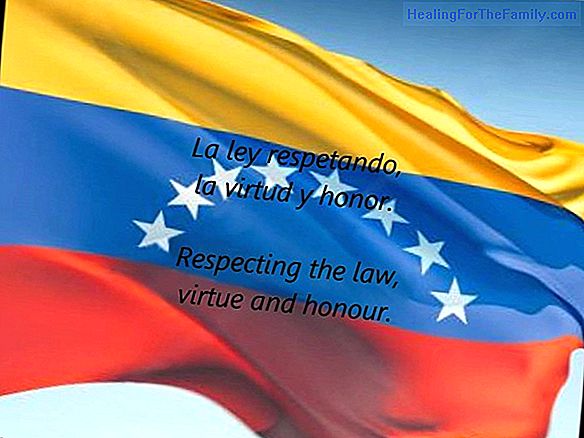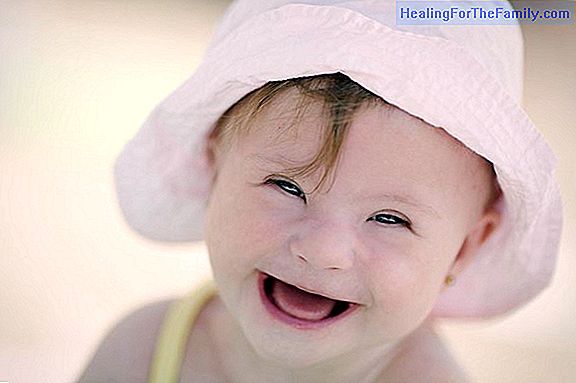Types of intelligence in childhood
Did you know that there is more than one type of intelligence? When we say that a child is intelligent. What do we mean? Maybe to his good grades? To what does the problems that are presented to you solve very well? All these questions that arise can be answered thanks to the theory of intelligences
Did you know that there is more than one type of intelligence? When we say that a child is intelligent. What do we mean? Maybe to his good grades? To what does the problems that are presented to you solve very well?
All these questions that arise can be answered thanks to the theory of intelligences proposed by Howard Gardner.
Howard Gardner's theory of multiple intelligences

This theory helps us to understand and respect the individual differences of each one. It is based on the premise that all people are diverse. There are no ones equal to others. And where when it comes to learning we all have the same rights.
When we talk about the right to education, we refer to what we call educational inclusion, and this does not mean having the same processes to learn. Each one has a need that evolves over time. Therefore, we must take into account the different intelligences to personalize education.
According to Howard Gardner, first 7 intelligences were defined, then there were 8 and now we can talk about 8 intelligences and a half.
Types of intelligence in children
1- Linguistic intelligence: This type of intelligence defines those people who are good at reading, chatting, telling jokes, writing stories, making diaries, writing poems, learning languages and playing games. words.
In short, they are people who have a special ability for communication.
2- Logical-mathematical intelligence: Their ability to solve problems is very striking and is usually related to a non-verbal type of intelligence, that is, one can know the answer to a certain problem long before having verbalized it.
Are the people who are good at: solving mysteries or ingenuity tests, doing puzzles, doing logic exercises, counting or calculating, organizing information in tables, fixing computer issues, playing strategy games, making estimates, memorize numbers and statistics.
3- Viso-spatial intelligence: this type of intelligence could be related to the previous one, referring to the ability to solve spatial problems, which should not be confused with having a visual perspective.
Are those people who are good at: drawing, painting, scribbling, playing platform games, building 3d models, reading maps, looking at optical illusions, contemplating paintings or paintings, solving mazes, playing construction games.
4- Musical Intelligence: There are studies that affirm that there is a universality in the human being in relation to music and that there is an innate ability to learn the different sounds, which would be translated in later years into a great capacity for sing and hum, listen to music, play instruments, compose songs, attend concerts, follow or set rhythms.
5.- Kinesthetic-corporal intelligence: this type of intelligence would also be something innate only that some are able to develop it more in depth.
Are those people who are good at: dancing, acting, imitating gestures or expressions, playing sports, running, moving, jumping, playing games of mime, discover new movements.
6- Intrapersonal Intelligence: are those people who are good at: working autonomously, thinking about the future, setting goals and how to achieve them, getting to know themselves better, understanding their feelings, knowing their strengths and weaknesses
7- Interpersonal intelligence: this type of intelligence would be contrary to the one previously treated, the intrapersonal one. They are those people who are good at: talking, working as a team, helping others, understanding other perspectives, being with friends, mediating conflicts, meeting new people
8- Naturalist intelligence: the author of the theory of multiple intelligences posed his own theory about this type of intelligence referring to the basic needs of the past in which the human being had to differentiate the plants to be able to eat, the different animals, etc. Observation and naturalistic intelligence was fundamental to the survival of what a human being could not lack.
They are those people who are good at it; go out to the countryside, go camping, go hiking, take care of animals, learn about nature, recycle, take care of the environment.
One more intelligence in childhood
- Existential: we raise this intelligence as media because it is beginning to be investigated now and there is not enough evidence to show that it meets all the conditions to be considered as one more. They are those people who are good at: thinking about transcendental issues, knowing other religions and beliefs, asking questions about the universe, finding out why things happen, understanding human acts.
Each person has each and every one of these intelligences, although they develop differently in one or the other in some. It is this intelligence profile that makes us different.












